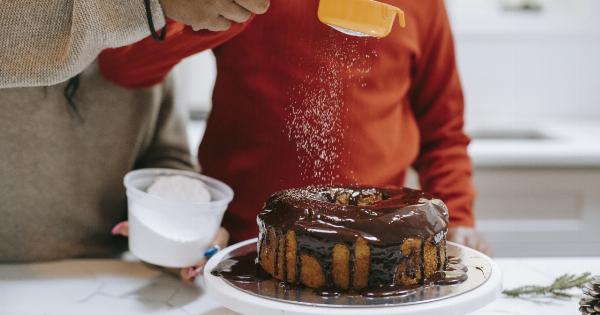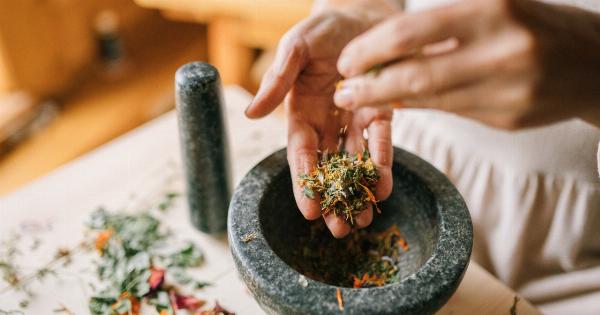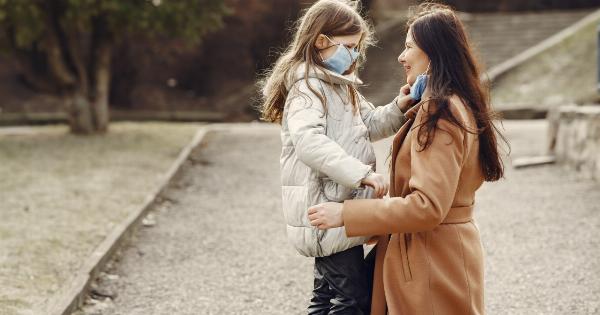The holiday season is a wonderful time filled with joy and celebration. However, for individuals with allergies, it can also be a challenging time.
Many common holiday-related factors, such as decorations, food, and weather changes, can trigger allergies and cause discomfort. This article will provide you with valuable tips and strategies to help you avoid allergy triggers during the holiday season, allowing you to fully enjoy this festive time of the year.
1. Keep Your Home Clean
One of the crucial steps in avoiding allergy triggers during the holiday season is to maintain a clean and dust-free home. Dust mites and mold are common triggers for allergies, and they tend to thrive in warm and humid environments.
Regularly vacuuming your carpets, dusting surfaces, and washing bedding can help reduce the accumulation of allergens in your home. Additionally, using allergen-proof covers for mattresses and pillows will provide a barrier against dust mites.
2. Choose Allergy-Friendly Decorations
Holiday decorations can be a significant source of allergy triggers. Artificial trees, wreaths, and other ornaments can accumulate dust and mold while in storage.
Before setting up your decorations, make sure to wipe them clean with a damp cloth and allow them to fully dry. If you prefer a real tree, keep in mind that it may carry pollen or trigger mold allergies. Consider hosing down the tree and letting it dry before bringing it indoors.
3. Be Mindful of Fragrances
Fragrances such as scented candles, potpourri, and air fresheners can irritate the respiratory system and trigger allergies. Opt for unscented or hypoallergenic alternatives instead.
If you enjoy the aromatic ambiance, consider using natural essential oils or simmering spices, like cinnamon sticks and cloves, on your stovetop to create a delightful fragrance throughout your home.
4. Properly Ventilate Your Home
During the holiday season, it’s common to have dozens of guests visiting your home. Increased indoor humidity can lead to mold growth, aggravating allergies.
Make sure to properly ventilate your home by using exhaust fans in the kitchen and bathrooms. Opening windows for a few minutes each day can also help circulate fresh air and reduce allergen build-up.
5. Choose Allergy-Friendly Food Options
Many holiday dishes contain common allergenic ingredients, such as nuts, dairy, and gluten. If you or your guests have food allergies, it’s essential to communicate beforehand and offer alternative options that accommodate their needs.
Clearly label any dishes that contain potential allergens so that everyone can make informed choices. Cross-contamination can also be a concern, so ensure that food preparation areas and utensils are thoroughly cleaned between different dishes.
6. Be Cautious About Pet Allergens
If you or your guests have pet allergies, the holiday season brings extra challenges. Inform your guests in advance if you have pets so that they can take necessary precautions.
Keep pets away from sleeping areas and consider providing a separate space for them during gatherings. Regularly groom your pets and clean their bedding to minimize the spread of allergens.
7. Monitor Indoor Humidity Levels
Dry winter air can exacerbate respiratory allergies, as it irritates the airways. Use a humidifier to maintain a comfortable humidity level in your home, usually between 30% and 50%.
However, be mindful of excessive humidity, as it can promote mold growth. Monitor and adjust the humidity levels accordingly, and ensure that you clean and maintain the humidifier properly to prevent mold and bacterial growth.
8. Stay Informed About Weather Changes
Weather changes, such as sudden drops in temperature or changes in atmospheric pressure, can trigger allergies in some individuals.
Keep an eye on weather forecasts and be prepared with appropriate clothing and medication, if necessary, to manage any adverse allergy symptoms that may arise. Taking preventive measures, such as wearing a scarf to cover your nose and mouth when going out into the cold air, can also help reduce exposure to potential triggers.
9. Use Hypoallergenic Skincare and Makeup Products
During the holiday season, people often attend parties and gatherings where they want to look their best. However, certain skincare and makeup products can contain ingredients that can irritate sensitive skin or trigger allergies.
Opt for hypoallergenic and fragrance-free products to minimize the risk of skin reactions and discomfort. Perform a patch test before trying any new products, especially if you have a history of skin allergies.
10. Keep Medications Handy
Despite your best efforts, it’s important to be prepared for unexpected allergy flare-ups.
Keep your prescribed allergy medications, such as antihistamines or inhalers, readily available at home and carry them with you when attending holiday events. If you’re hosting guests, ask them if they have any specific medication requirements and ensure they feel comfortable storing their medications safely during their visit.
By following these tips and being mindful of potential allergy triggers, you can enjoy a happy and allergy-free holiday season.
Create an environment that prioritizes the comfort and safety of all guests, and don’t hesitate to seek medical advice if allergy symptoms persist or worsen. Wishing you a joyful and allergen-free holiday season!.































